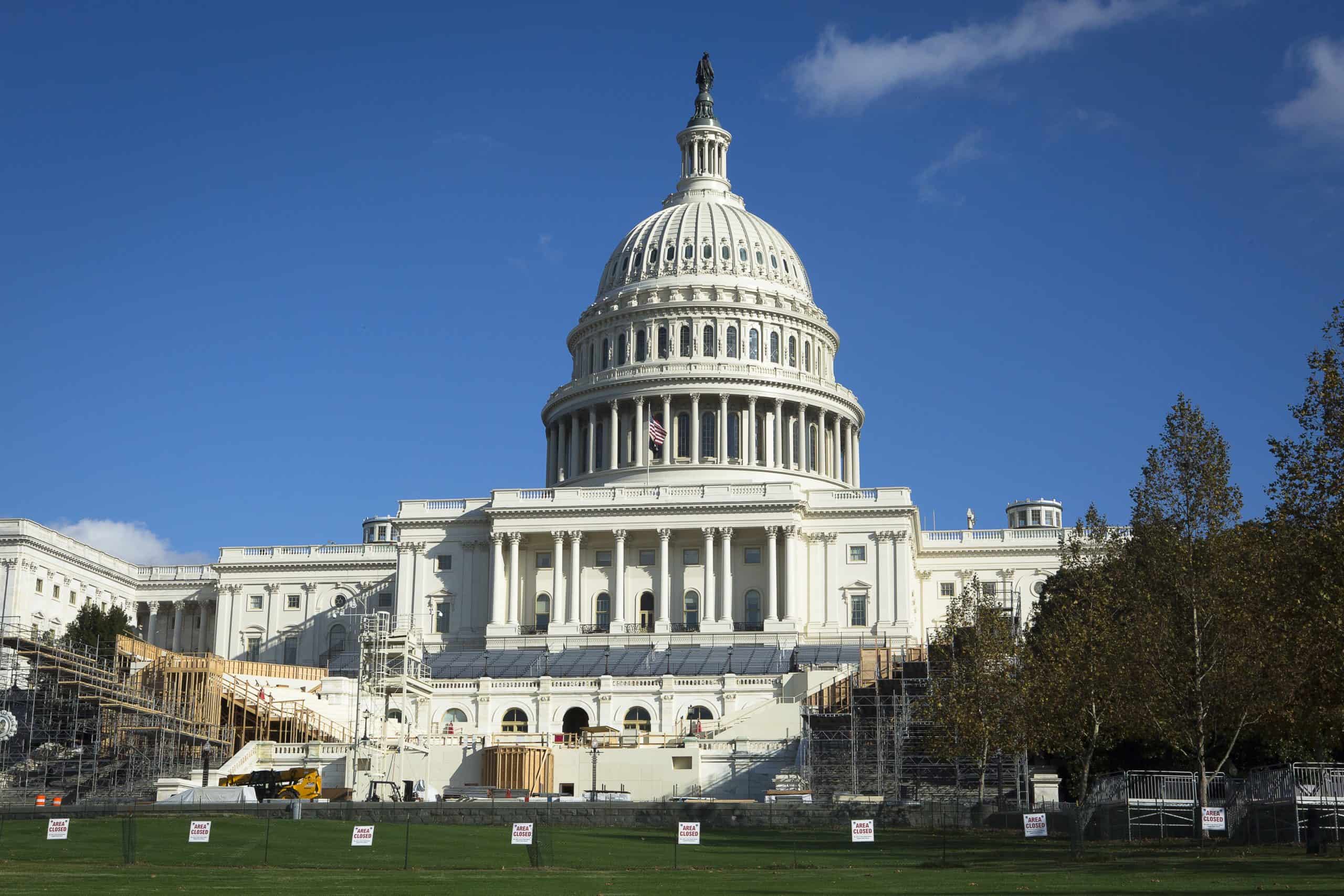As America prepares to inaugurate a new president, I’ve found myself listening to the “Battle Hymn of the Republic” a good bit. At my church growing up, we sang it at Mass on virtually every civic holiday. There is something comforting about hymns and scripture passages that tell of God’s ultimate victory over evil. Part of me hopes that elections or inaugurations will bring a similar sort of ultimate victory—as if new political leaders could save us from all that ails the country.
Julia Ward Howe wrote the original poem, set to a traditional melody, to give a morale boost to war-weary Union soldiers during the Civil War. My renewed interest in the hymn likely comes from a similar desire for inspiration. It’s not hard to see why.
In dark and uncertain times, the idea that God “has loosed the fateful lightning of his terrible swift sword,” “is trampling out the vintage where the grapes of wrath are stored,” and “has sounded forth the trumpet that shall never call retreat” reassures believers that a strong savior is on the way.
At a time when our political discourse is bent on the idea that apocalyptic events are taking place, it’s not a coincidence that the biggest summer blockbusters are superhero action movies. We are desperate to see larger-than-life figures swoop to the rescue and wage battles against evil forces on behalf of humanity.
This is a theme that should be familiar to Christians: a chosen one will rise up to lead a cosmic battle of good against evil. Hosts of supernatural forces will fight over the very survival of everything we love, and at the end, the good guys win and the bad guys are cast out.
Before the Avengers movies, we had the Book of Revelation.
Recent apocalyptic political fervor came to its fullest expression during the January 6th US Capitol insurrection. Many marchers that day saw themselves as “God’s warriors” engaged in “fighting good versus evil, dark versus light,” with some invoking the utter destruction of Jericho, put to the sword by the Israelites at the order of God in the Book of Joshua, as the model for what they were doing. According to this logic, evil has taken over our institutions and everything must go, even America’s very constitutional foundations.
There’s a big problem with that strategy, though: it isn’t how God operates. God does not enter into our reality with destruction and vengeance.
In fact, Christians have just celebrated the feast of God’s entrance into our reality. At Christmas, we celebrate the arrival of God-with-us, the Christ, the Messiah. Yet when he walked on Earth, Jesus consistently defied prior expectations of what the Messiah would bring. Far from arriving as a conquering king, he was born a defenseless child in an unimportant town on the fringes of an empire. He rejected the use of violence to defend himself when the Roman authorities came to arrest him and refused to plead his cause before the courts with his life on the line. While he overturned tables in the Temple to get the attention of religious leaders, he didn’t then muster a militia to bring violence down on their heads.
Rather than raising an army, what did the Messiah do? We can start, perhaps, with his “oath of office,” if you will, Jesus’ mission statement at the beginning of his ministry:
“The Spirit of the Lord is upon me, because he has anointed me to bring glad tidings to the poor. He has sent me to proclaim liberty to captives and recovery of sight to the blind, to let the oppressed go free and to proclaim a year acceptable to the Lord.” (Luke 4:8-9, paraphrasing Isaiah 61:1)
Jesus spent his time preaching the Kingdom of God and showing what that Kingdom means: he forgave sins, healed people who were sick, and cast out their demons. In doing so, he removed the chains that kept them from full membership in the community, and he affirmed their dignity as God’s beloved children.
He had harsh words for those who ruled by hypocrisy, insisted the sinful turn from their ways, and spent his time with people others were happy to cast aside. Not only did he never win a position of power, but he accepted the greatest possible loss of power, giving up his very life through execution as a common criminal.
While Christians have the sure hope that God will one day bring about the ultimate victory of good over evil, we already have a Savior to give us a model of leadership. Jesus was not a zealot or a judge, but a teacher who brought healing and reconciliation. At the beginning of a new presidential administration, and amid so much political turmoil, it’s more important than ever that Christians take a hard look at whether our leaders match up to his example.
If we seek a better life for all Americans, apocalyptic destruction is not the answer. Rather, we ought to insist our leaders look more like Jesus: empathizing with those they lead rather than demonizing them, building community rather than tearing it down, and seeking justice rather than vengeance.


